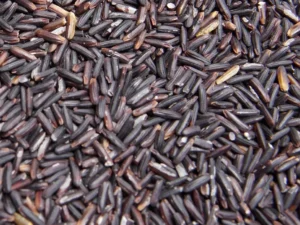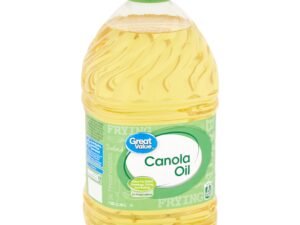Introduction to Sunflower Oil: A Golden Elixir
As a nutritionist and culinary enthusiast, we have always been fascinated by the golden hue and subtle nutty aroma of sunflower oil. This versatile oil, extracted from the seeds of the majestic sunflower plant, has been a staple in kitchens worldwide for centuries. Its popularity isn’t just due to its pleasant taste and cooking properties; sunflower oil has garnered attention for its potential health benefits as well.
The Composition of Sunflower Oil: What Makes It Special?
Sunflower oil’s unique properties stem from its complex composition. At its core, this oil is primarily made up of triglycerides, which are molecules consisting of three fatty acids attached to a glycerol backbone. What sets sunflower oil apart is the specific blend of fatty acids it contains.
The main types of fatty acids found in sunflower oil include:
- Linoleic acid (Omega-6)
- Oleic acid (Omega-9)
- Palmitic acid
- Stearic acid
The proportions of these fatty acids can vary depending on the variety of sunflower seeds used and the processing methods employed. For instance, some varieties are bred to produce oil with higher oleic acid content, while others yield oil richer in linoleic acid.
In addition to these fatty acids, sun flower oil contains several beneficial compounds:
- Vitamin E (tocopherols)
- Phytosterols
- Phospholipids
- Carotenoids
These components contribute to the oil’s stability, antioxidant properties, and potential health benefits. The presence of vitamin E, in particular, makes sunflower oil an excellent source of this fat-soluble antioxidant, which plays a crucial role in protecting our cells from oxidative stress.
Nutritional Profile: Breaking Down the Nutrients
Understanding the nutritional profile of sun flower oil is key to appreciating its potential impact on our health. As a concentrated source of fat, sunflower oil provides about 120 calories per tablespoon, which is comparable to other vegetable oils. However, it’s the quality and type of fats that make sun flower oil stand out.
Here’s a breakdown of the nutritional content in one tablespoon (14g) of sunflower oil:
| Nutrient | Amount |
|---|---|
| Calories | 120 |
| Total Fat | 14g |
| Saturated Fat | 1.4g |
| Monounsaturated Fat | 2.7g |
| Polyunsaturated Fat | 8.9g |
| Vitamin E | 5.6mg (37% DV) |
As we can see, sun flower oil is predominantly composed of unsaturated fats, with a significant portion being polyunsaturated fats. This fatty acid profile contributes to its potential heart-health benefits, which we’ll explore in more detail in the next section.
One of the standout features of sun flower oil is its high vitamin E content. This powerful antioxidant not only contributes to the oil’s stability but also offers numerous health benefits when consumed as part of a balanced diet.
Heart Health: How Sun flower Oil Supports Cardiovascular Wellness
When it comes to heart health, the type of fat we consume plays a crucial role. Sunflower oil, with its high content of unsaturated fats, particularly polyunsaturated fats, can be a heart-friendly choice when used as part of a balanced diet.
Research has shown that replacing saturated fats with unsaturated fats can help lower LDL (bad) cholesterol levels in the blood. This is significant because high LDL cholesterol is a major risk factor for heart disease. By incorporating sunflower oil into our cooking, we can potentially improve our lipid profile and support cardiovascular health.
Moreover, the vitamin E content in sunflower oil adds another layer of heart protection. As a potent antioxidant, vitamin E helps prevent the oxidation of LDL cholesterol, a process that can contribute to the formation of arterial plaques. By reducing oxidative stress, vitamin E may help maintain the health of our blood vessels and support overall cardiovascular function.
It’s important to note, however, that while sunflower oil can be part of a heart-healthy diet, moderation is key. As with any oil, it’s calorie-dense, and excessive consumption can lead to weight gain, which can counteract its potential benefits.
Skin Benefits: Sun flower Oil as a Natural Beauty Aid
As a natural beauty enthusiast, I’ve been intrigued by the potential skin benefits of sunflower oil. This versatile oil isn’t just for cooking; it can also be a valuable addition to our skincare routines.
Sunflower oil’s skin-friendly properties include:
- Moisturizing effects: The oil’s emollient properties help lock in moisture, making it an excellent natural moisturizer for dry or sensitive skin.
- Barrier protection: The linoleic acid in sunflower oil helps strengthen the skin’s natural barrier, potentially reducing water loss and protecting against environmental stressors.
- Anti-inflammatory properties: Some studies suggest that sunflower oil may have anti-inflammatory effects when applied topically, which could be beneficial for conditions like acne or eczema.
- Antioxidant protection: The vitamin E content in sunflower oil provides antioxidant protection, potentially helping to combat free radical damage and signs of premature aging.
- Non-comedogenic nature: Unlike some heavier oils, sunflower oil is generally non-comedogenic, meaning it’s less likely to clog pores, making it suitable for various skin types.
When using sunflower oil for skincare, opt for cold-pressed, unrefined varieties to ensure you’re getting the maximum nutritional benefits. As with any new skincare product, it’s always wise to do a patch test first to ensure you don’t have any adverse reactions.
Culinary Uses: Versatility in the Kitchen
In my culinary adventures, I’ve found sunflower oil to be incredibly versatile. Its light flavor and high smoke point make it suitable for a wide range of cooking methods. Here are some ways we can incorporate sunflower oil into our culinary repertoire:
- Sautéing and stir-frying: The high smoke point of sunflower oil (around 450°F for refined varieties) makes it ideal for high-heat cooking methods like sautéing and stir-frying.
- Baking: Sunflower oil can be a healthier alternative to butter or margarine in many baking recipes, imparting moisture without adding a strong flavor.
- Salad dressings: The mild flavor of sunflower oil makes it an excellent base for homemade salad dressings and vinaigrettes.
- Deep frying: While deep frying should be done in moderation, sunflower oil’s high smoke point makes it suitable for this cooking method.
- Marinades: Use sunflower oil as a base for marinades to help distribute flavors and tenderize meats.
When cooking with sunflower oil, keep in mind that while it’s heat-stable, prolonged exposure to high temperatures can degrade its nutritional quality. For cold applications or low-heat cooking, consider using cold-pressed, unrefined sunflower oil to maximize its nutritional benefits.
Sun flower Oil vs. Other Cooking Oils: A Comparative Analysis
To truly appreciate the unique qualities of sunflower oil, it’s helpful to compare it with other common cooking oils. Each oil has its own fatty acid profile, smoke point, and nutritional benefits, making them suitable for different culinary applications and dietary needs.
Here’s a comparison of sunflower oil with some popular cooking oils:
| Oil Type | Main Fat Type | Smoke Point | Vitamin E Content | Best Uses |
|---|---|---|---|---|
| Sunflower Oil | Polyunsaturated | 450°F (refined) | High | All-purpose cooking, frying |
| Olive Oil | Monounsaturated | 375-470°F | Moderate | Low-heat cooking, dressings |
| Coconut Oil | Saturated | 350°F | Low | Baking, medium-heat cooking |
| Avocado Oil | Monounsaturated | 520°F | Moderate | High-heat cooking, dressings |
| Canola Oil | Monounsaturated | 400°F | Low | All-purpose cooking |
As we can see, sunflower oil stands out for its high vitamin E content and versatility in cooking. Its relatively neutral flavor also makes it a good choice for recipes where we don’t want the oil to overpower other ingredients.
However, it’s worth noting that a balanced diet typically includes a variety of healthy fats from different sources. While sunflower oil can be an excellent addition to our pantry, it shouldn’t be the only oil we use.
Potential Side Effects and Precautions
While sunflower oil offers numerous benefits, it’s important to be aware of potential side effects and take necessary precautions. As with any food, some individuals may have allergies or sensitivities to sunflower oil. If you experience any adverse reactions after consuming or applying sunflower oil, discontinue use and consult a healthcare professional.
Some considerations to keep in mind:
- Omega-6 to Omega-3 ratio: Sunflower oil is high in omega-6 fatty acids. While these are essential for health, an imbalance between omega-6 and omega-3 fatty acids in the diet may contribute to inflammation. Ensure you’re getting enough omega-3s from sources like fatty fish or flaxseeds to maintain a healthy balance.
- Calorie content: Like all oils, sunflower oil is calorie-dense. Overconsumption can lead to weight gain, so it’s important to use it in moderation as part of a balanced diet.
- Oxidation: When exposed to heat, light, and air, oils can oxidize, potentially forming harmful compounds. Store sunflower oil in a cool, dark place and avoid reusing oil that has been heated to high temperatures.
- Interaction with medications: If you’re taking blood-thinning medications, the vitamin K content in some types of sunflower oil might interfere with your treatment. Always consult your healthcare provider about potential food-drug interactions.
- Quality matters: Choose high-quality, properly processed sunflower oil to minimize the risk of contaminants or rancidity.
By being mindful of these factors, we can enjoy the benefits of sunflower oil while minimizing potential risks.
Choosing the Right Sun flower Oil: Refined vs. Unrefined
When shopping for sunflower oil, we’re often faced with a choice between refined and unrefined varieties. Understanding the differences can help us make the best selection for our needs.
Refined Sunflower Oil:
- Processed to remove impurities and free fatty acids
- Has a higher smoke point (around 450°F)
- Neutral flavor and light color
- Longer shelf life
- May have fewer nutrients due to processing
Unrefined (Cold-Pressed) Sunflower Oil:
- Minimally processed
- Lower smoke point (around 225-320°F)
- Stronger, nuttier flavor and darker color
- Retains more of its natural nutrients, including vitamin E
- Shorter shelf life
For high-heat cooking, refined sunflower oil is often the better choice due to its higher smoke point. However, for cold applications like salad dressings or low-heat cooking, unrefined sunflower oil can offer more flavor and nutritional benefits.
When selecting sunflower oil, also consider the following:
- Look for oils stored in dark bottles to protect from light exposure
- Check the expiration date
- For maximum nutritional benefits, choose organic, cold-pressed varieties
- Consider the intended use (cooking, skincare, etc.) when making your selection
By choosing the right type of sunflower oil for our needs, we can maximize its benefits and enjoy its versatility in both culinary and beauty applications.
Sustainability and Environmental Impact of Sun flower Oil Production
As an environmentally conscious consumer, I believe it’s crucial to consider the sustainability aspects of the foods we consume. Sunflower oil production, like any agricultural process, has environmental implications that we should be aware of.
Sunflower cultivation has some positive environmental aspects:
- Drought tolerance: Sunflowers are relatively drought-tolerant, requiring less water compared to some other oilseed crops.
- Soil benefits: Sunflowers have deep root systems that can help improve soil structure and reduce erosion.
- Biodiversity support: Sunflower fields can provide habitat and food for pollinators and other wildlife.
However, there are also challenges:
- Land use: Large-scale sunflower cultivation requires significant land area, which can contribute to habitat loss if not managed sustainably.
- Pesticide use: Conventional sunflower farming often involves the use of pesticides, which can have negative impacts on ecosystems and human health.
- Processing energy: The oil extraction and refining process requires energy, contributing to the overall carbon footprint of the product.
To make more sustainable choices, consider:
- Opting for organic sunflower oil, which is produced without synthetic pesticides
- Looking for brands that prioritize sustainable farming practices
- Using sunflower oil efficiently to reduce waste
By being mindful of these factors, we can enjoy the benefits of sunflower oil while minimizing our environmental impact.
Conclusion: Embracing Sun flower Oil in a Healthy Lifestyle
In the kitchen, its versatility shines through its ability to withstand high-heat cooking while also serving as a delicious base for cold applications like salad dressings. Its neutral flavor makes it an excellent choice for a wide range of culinary creations, allowing other ingredients to take center stage.
Beyond the culinary world, sunflower oil’s potential skin benefits make it a natural choice for those seeking gentle, nourishing skincare options. Its moisturizing and antioxidant properties can contribute to healthier, more radiant skin when used appropriately.
However, as with any dietary component, moderation and balance are key. While sunflower oil can be part of a healthy diet, it should be consumed alongside a variety of other nutritious foods and oils to ensure a well-rounded intake of nutrients.
In conclusion, sunflower oil, with its golden hue and nutrient-rich profile, offers a blend of culinary versatility and potential health benefits. By understanding its properties and using it wisely, we can harness the power of this golden elixir to enhance our meals, nourish our bodies, and potentially contribute to our overall health and well-being.
Ready to experience the benefits of sunflower oil for yourself? Why not try incorporating it into your next meal or skincare routine? Whether you’re whipping up a stir-fry, baking a cake, or looking for a natural moisturizer, sunflower oil could be the versatile ingredient you’ve been missing. Give it a try and see how this golden elixir can enhance your lifestyle!




























There are no reviews yet.